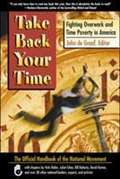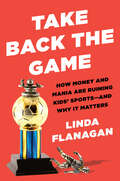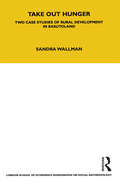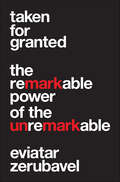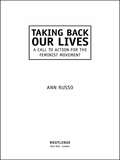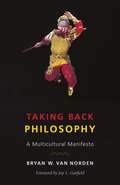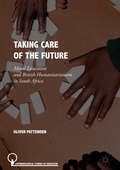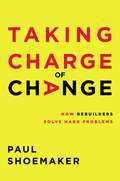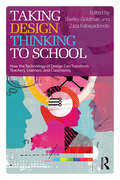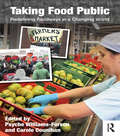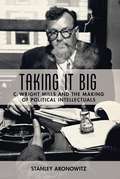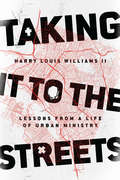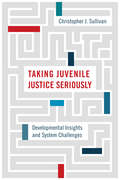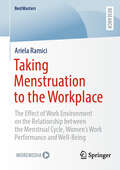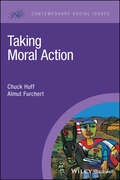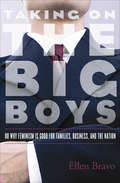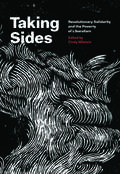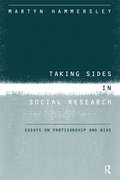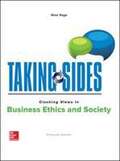- Table View
- List View
Take Back Your Time: Fighting Overwork And Time Poverty In America
by John De GraafThe book is timed to publicize Take Back Your Time Day on October 24, 2003, this date intended to highlight that Americans typically work nine weeks longer than Western Europeans. The collection comprises 30 essays by people like Cecile Andrews, author of "Circle of Simplicity"; Kirk Warren Brown, psychology, U. of Rochester; David Korten, author of "When Corporations Rule the World"; Christine Owens of the AFL-CIO; and Camilla Fox of the Animal Protection Institute in Sacramento (Ms. Fox argues that overwork means neglect of pets). Other contributions include short essays (with even shorter editorial introductions) addressing such topics as making the right pitch to supervisors for reduced time, "overemployment" (being forced to work longer than one wants), and overwork's impact on community and the environment.
Take Back the Game: How Money and Mania Are Ruining Kids' Sports--and Why It Matters
by Linda FlanaganA close look at how big money and high stakes have transformed youth sports, turning once healthy, fun activities for kids into all-consuming endeavors—putting stress on children and families alikeSome 75% of American families want their kids to play sports. Athletics are training grounds for character, friendship, and connection; at their best, sports insulate kids from hardship and prepare them for adult life. But youth sports have changed so dramatically over the last 25 years that they no longer deliver the healthy outcomes everyone wants. Instead, unbeknownst to most parents, kids who play competitive organized sports are more likely to burn out or suffer from overuse injuries than to develop their characters or build healthy habits. What happened to kids' sports? And how can we make them fun again? In Take Back the Game, coach and journalist Linda Flanagan reveals how the youth sports industry capitalizes on parents&’ worry about their kids&’ futures, selling the idea that more competitive play is essential in the feeding frenzy over access to colleges and universities. Drawing on her experience as a coach and a parent, along with research and expert analysis, Flanagan delves into a national obsession that has: Compelled kids to specialize year-round in one sport. Increased the risk of both physical injury and mental health problems.Encouraged egregious behavior by coaches and parents. Reduced access to sports for low-income families. A provocative and timely entrant into a conversation thousands of parents are having on the sidelines, Take Back the Game uncovers how youth sports became a serious business, the consequences of raising the stakes for kids and parents alike--and the changes we need now.
Take Control of Siri
by Scholle McFarlandWhen it comes to using your Apple devices, Siri is increasingly the hands-free, time-saving, and fun technology that ties everything together. Whether you want to ask a question, make a call, find your iPhone, or set a timer—not only can Siri do it, but it usually offers the fastest way. This book explores how to get the most out of Siri on your iPhone, iPad, Apple Watch, Mac, and HomePod.
Take Control of Siri
by Scholle McFarlandWhen it comes to using your Apple devices, Siri is increasingly the hands-free, time-saving, and fun technology that ties everything together. Whether you want to ask a question, make a call, find your iPhone, or set a timer—not only can Siri do it, but it usually offers the fastest way. This book explores how to get the most out of Siri on your iPhone, iPad, iPod touch, Apple Watch, Mac, and HomePod.
Take Control of Siri
by Scholle McFarlandWhen it comes to using your Apple devices, Siri is the hands-free, time-saving, and fun technology that ties everything together. Whether you want to ask a question, make a call, find your iPhone, or set a timer, not only can Siri do it, but it usually offers the fastest way. This book explores how to get the most out of Siri on your iPhone, iPad, Mac, Apple Watch, Apple TV, and HomePod.
Take Control of Slack
by Glenn FleishmanWrap your head around how Slack group messaging works, learn to communicate and collaborate using its many features, and discover how to use integrations and notifications to get more out of it. The book explains finding channels, starting conversations, posting messages, interacting with bots, and more! The Slack web app is covered, along with apps for macOS, Windows, iOS, and Android.
Take Out Hunger: Two Case Studies of Rural Development in Basutoland Volume 39 (London School Of Economics Monographs On Social Anthropology Ser. #No. 39)
by S. WallmanDevelopment schemes are common throughout the third world. Many fail, but the reasons for failure or success are only too often not adequately studied. In this monograph two schemes started in Basutoland - now Lesotho - are intensively analysed and compared: the first, which was abandoned in 1961, primarily by means of documentary material; the second, which was and still is successful in at least part of the area, mainly through observation and field research. The analysis reveals the factors making for success or failure, particularly in the fields of politics, economics, and communication. The relevance of the study extends beyond Lesotho and even Africa, the analysis dealing with problems common to introduced social change and development in any part of the world.
Taken for Granted: The Remarkable Power of the Unremarkable (WILDGuides)
by Eviatar ZerubavelHow the words we use—and don’t use—reinforce dominant cultural normsWhy is the term "openly gay" so widely used but "openly straight" is not? What are the unspoken assumptions behind terms like "male nurse," "working mom," and "white trash"? Offering a revealing and provocative look at the word choices we make every day without even realizing it, Taken for Granted exposes the subtly encoded ways we talk about race, gender, sexual orientation, religion, social status, and more.In this engaging and insightful book, Eviatar Zerubavel describes how the words we use--such as when we mark "the best female basketball player" but leave her male counterpart unmarked—provide telling clues about the things many of us take for granted. By marking "women's history" or "Black History Month," we are also reinforcing the apparent normality of the history of white men. When we mark something as being special or somehow noticeable, that which goes unmarked—such as maleness, whiteness, straightness, and able-bodiedness—is assumed to be ordinary by default. Zerubavel shows how this tacit normalizing of certain identities, practices, and ideas helps to maintain their cultural dominance—including the power to dictate what others take for granted.A little book about a very big idea, Taken for Granted draws our attention to what we implicitly assume to be normal—and in the process unsettles the very notion of normality.
Taking Action Against Homelessness (Taking Action )
by Kaye StearmanStudents learn about the causes of homelessness and what can be done to prevent it.
Taking Back Our Lives: A Call to Action for the Feminist Movement
by Ann RussoFirst published in 2001. Routledge is an imprint of Taylor & Francis, an informa company.
Taking Back Philosophy: A Multicultural Manifesto
by Bryan W. Van NordenAre American colleges and universities failing their students by refusing to teach the philosophical traditions of China, India, Africa, and other non-Western cultures? This biting and provocative critique of American higher education says yes. Even though we live in an increasingly multicultural world, most philosophy departments stubbornly insist that only Western philosophy is real philosophy and denigrate everything outside the European canon. In Taking Back Philosophy, Bryan W. Van Norden lambastes academic philosophy for its Eurocentrism, insularity, and complicity with nationalism and issues a ringing call to make our educational institutions live up to their cosmopolitan ideals. In a cheeky, agenda-setting, and controversial style, Van Norden, an expert in Chinese philosophy, proposes an inclusive, multicultural approach to philosophical inquiry. He showcases several accessible examples of how Western and Asian thinkers can be brought into productive dialogue, demonstrating that philosophy only becomes deeper as it becomes increasingly diverse and pluralistic. Taking Back Philosophy is at once a manifesto for multicultural education, an accessible introduction to Confucian and Buddhist philosophy, a critique of the ethnocentrism and anti-intellectualism characteristic of much contemporary American politics, a defense of the value of philosophy and a liberal arts education, and a call to return to the search for the good life that defined philosophy for Confucius, Socrates, and the Buddha. Building on a popular New York Times opinion piece that suggested any philosophy department that fails to teach non-Western philosophy should be renamed a “Department of European and American Philosophy,” this book will challenge any student or scholar of philosophy to reconsider what constitutes the love of wisdom.
Taking Back the Boulevard: Art, Activism, and Gentrification in Los Angeles
by Jan LinThe promises and conflicts faced by public figures, artists, and leaders of Northeast Los Angeles as they enliven and defend their neighborhoods Los Angeles is well known as a sprawling metropolis with endless freeways that can make the city feel isolating and separate its communities. Yet in the past decade, as Jan Lin argues in Taking Back the Boulevard, there has been a noticeable renewal of public life on several of the city’s iconic boulevards, including Atlantic, Crenshaw, Lankershim, Sunset, Western, and Wilshire. These arteries connect neighborhoods across the city, traverse socioeconomic divides and ethnic enclaves, and can be understood as the true locational heart of public life in the metropolis. Focusing especially on the cultural scene of Northeast Los Angeles, Lin shows how these gentrifying communities help satisfy a white middle-class consumer demand for authentic experiences of “living on the edge” and a spirit of cultural rebellion. These neighborhoods have gone through several stages, from streetcar suburbs, to disinvested neighborhoods with the construction of freeways and white flight, to immigrant enclaves, to the home of Chicano/a artists in the 1970s. Those artists were then followed by non-Chicano/a, white artists, who were later threatened with displacement by gentrifiers attracted by the neighborhoods’ culture, street life, and green amenities that earlier inhabitants had worked to create. Lin argues that gentrification is not a single transition, but a series of changes that disinvest and re-invest neighborhoods with financial and cultural capital. Drawing on community survey research, interviews with community residents and leaders, and ethnographic observation, this book argues that the revitalization in Northeast LA by arts leaders and neighborhood activists marks a departure in the political culture from the older civic engagement to more socially progressive coalition work involving preservationists, environmentalists, citizen protestors, and arts organizers. Finally, Lin explores how accelerated gentrification and mass displacement of Latino/a and working-class households in the 2010s has sparked new rounds of activism as the community grapples with new class conflicts and racial divides in the struggle to self-determine its future.
Taking Care of the Future: Moral Education And British Humanitarianism In South Africa (Anthropological Studies Of Education Ser.)
by Oliver PattendenTaking Care of the Future examines the moral dimensions and transformative capacities of education and humanitarianism through an intimate portrayal of learners, volunteers, donors, and educators at a special needs school in South Africa and a partnering UK-based charity. Drawing on his professional experience of “inclusive education” in London, Oliver Pattenden investigates how systems of schooling regularly exclude and mishandle marginalized populations, particularly exploring how “street kids” and poverty-afflicted young South Africans experience these dynamics as they attempt to fashion their futures. By unpacking the ethical terrains of fundraising, voluntourism, Christian benevolence, human rights, colonial legacies, and the post-apartheid transition, Pattenden analyzes how political, economic and social aspects of intervention materialize to transform the lives of all those involved.
Taking Charge of Change: How Rebuilders Solve Hard Problems
by Paul ShoemakerThe model to meet the unprecedented challenges unique to the decade ahead and make a remarkable impact on people&’s lives—led by the success stories of 38 change leaders whose paths of action give you the blueprint.To meet the radically different challenges of inequity, division, and scarcity of resources that will only increase over the next ten years, the most successful and valuable leaders are those with the traits to be rebuilders.Thought leader Paul Shoemaker profiles 38 rock star rebuilders so you have a model to follow, including Peter Drucker Award winner Rosanne Haggerty, whose goal is to end chronic homelessness; Trish Millines, who has changed lives for kids of color in high tech; and David Risher, whose cross-sector approach is helping solve global illiteracy.Page by page, the common elements rebuilders utilize to make a remarkable impact on some or our most complex problems are highlighted as you: Learn the 5 vital traits change leaders use to solve big problems.Gain new perspective from relevant research, data, leadership lessons, and 3 case studies that illuminate the path ahead.Meet the leaders setting the standard for social change impact, all shared in Shoemaker&’s signature storytelling style.Taking Charge of Change is written for anyone seeking to be the driver of real change and an integral part of rebuilding the structures and foundations of American communities and companies throughout the decade ahead.
Taking Design Thinking to School: How the Technology of Design Can Transform Teachers, Learners, and Classrooms
by Shelley Goldman Zaza KabayadondoDesign thinking is a method of problem-solving that relies on a complex set of skills, processes and mindsets that help people generate novel solutions to problems. Taking Design Thinking to School: How the Technology of Design Can Transform Teachers, Learners, and Classrooms uses an action-oriented approach to reframing K-12 teaching and learning, examining interventions that open up dialogue about when and where learning, growth, and empowerment can be triggered. While design thinking projects make engineering, design, and technology fluency more tangible and personal for a broad range of young learners, their embrace of ambiguity and failure as growth opportunities often clash with institutional values and structures. Through a series of in-depth case studies that honor and explore such tensions, the authors demonstrate that design thinking provides students with the agency and compassion that is necessary for doing creative and collaborative work, both in and out of the classroom. A vital resource for education researchers, practitioners, and policymakers, Taking Design Thinking to School brings together some of the most innovative work in design pedagogy.
Taking Food Public: Redefining Foodways in a Changing World
by Carole Counihan Psyche Williams-ForsonThe field of food studies has been growing rapidly over the last thirty years and has exploded since the turn of the millennium. Scholars from an array of disciplines have trained fresh theoretical and methodological approaches onto new dimensions of the human relationship to food. This anthology capitalizes on this particular cultural moment to bring to the fore recent scholarship that focuses on innovative ways people are recasting food in public spaces to challenge hegemonic practices and meanings. Organized into five interrelated sections on food production – consumption, performance, Diasporas, and activism – articles aim to provide new perspectives on the changing meanings and uses of food in the twenty-first century.
Taking It Big: C. Wright Mills and the Making of Political Intellectuals
by Stanley AronowitzC. Wright Mills (1916–1962) was a pathbreaking intellectual who transformed the independent American Left in the 1940s and 1950s. Often challenging the established ideologies and approaches of fellow leftist thinkers, Mills was central to creating and developing the idea of the "public intellectual" in postwar America and laid the political foundations for the rise of the New Left in the 1960s. Written by Stanley Aronowitz, a leading sociologist and critic of American culture and politics, Taking It Big reconstructs this icon's formation and the new dimension of American political life that followed his work.Aronowitz revisits Mills's education and its role in shaping his outlook and intellectual restlessness. Mills defined himself as a maverick, and Aronowitz tests this claim (which has been challenged in recent years) against the work and thought of his contemporaries. Aronowitz describes Mills's growing circle of contacts among the New York Intellectuals and his efforts to reenergize the Left by encouraging a fundamentally new theoretical orientation centered on more ambitious critiques of U.S. society. Blurring the rigid boundaries among philosophy, history, and social theory and between traditional orthodoxies and the radical imagination, Mills became one of the most admired and controversial thinkers of his time and was instrumental in inspiring the student and antiwar movements of the 1960s. In this book, Aronowitz not only reclaims this critical thinker's reputation but also emphasizes his ongoing significance to debates on power in American democracy.
Taking It to the Streets: Lessons from a Life of Urban Ministry
by Harry Louis Williams IIThere's an urgent need for Christian ministry in our cities—but we need a guide. Known around Oakland, California, as "OG Rev.," Reverend Harry Williams's calling is to the streets: to the hungry, homeless, addicted, incarcerated, and vulnerable. In Taking It to the Streets, he invites us into his world, bringing us face-to-face with both the injustices that plague our cities and the gospel of compassion that offers hope to the downtrodden. Rev. Williams takes on racism, the plight of children in the inner city, gentrification, urban violence, the prosperity gospel, and more, all from the perspective of someone who understands these phenomena from the inside. Whether we ourselves are from the city or not, we need a deep understanding of its social, political, and spiritual realities if we're to minister effectively. Taking It to the Streets offers firsthand accounts of urban life alongside large-scale considerations of its systemic challenges, all in the context of the life-giving good news of Jesus. This is the introduction to urban ministry we need. Filled with both sober truths and the hope of Jesus, it will inspire and equip a new generation of ministers to our cities.
Taking Juvenile Justice Seriously: Developmental Insights and System Challenges
by Christopher J. SullivanThe juvenile justice system navigates a high degree of variation in youthful offenders. While professionals with insights about reform and adolescent development consider the risks, the needs, and the patterns of delinquency of youth, too little attention is paid to the responses and practicalities of a system that is both complex and limited in its resources. In his essential book, Taking Juvenile Justice Seriously, Christopher Sullivan systematically analyzes key facets of justice-involved youth populations and parses cases to better understand core developmental influences that affect delinquency. He takes a comprehensive look at aspects of the life-course affected by juvenile justice as well as at the juvenile justice system’s operations and its multifaceted mission of delivering both treatment and sanctions to a varied population of youths. Taking Juvenile Justice Seriously first provides an overview of the youth who encounter the system, then describes its present operations and obstacles, synthesizes relevant developmental insights, and reviews current practices. Drawing on research, theory, and evidence regarding innovative policies, Sullivan offers a series of well-grounded recommendations that suggest how to potentially—and realistically—implement a more effective juvenile justice system that would benefit all.
Taking Menstruation to the Workplace: The Effect of Work Environment on the Relationship between the Menstrual Cycle, Women’s Work Performance and Well-Being (BestMasters)
by Ariela RamiciThis book delves into the intricate relationship between workplace environments and women's menstrual health, work performance, and overall well-being. Through extensive survey analysis, it uncovers a pervasive lack of awareness and stigma surrounding menstruation-related topics in workplaces, leading to discomfort and the concealment of symptoms among women. While workplace environmental factors and stressors do not directly cause menstrual health issues, perceived stress has shown to significantly influence women's occupational health and safety. Challenges such as inadequate pain management and cultural taboos further exacerbate the situation. The book emphasizes the importance of educational initiatives and fostering supportive, inclusive workplace cultures and leadership to address these challenges. Future research should focus on global trends and gender-specific stress responses. By prioritizing menstrual health in workplace wellness initiatives, organizations can create inclusive environments that enhance overall well-being and productivity for all employees.
Taking Moral Action (Contemporary Social Issues)
by Chuck Huff Almut FurchertProvides a systematic framework for understanding and shaping moral action Taking Moral Action offers a timely and comprehensive overview of the emerging field of moral psychology, introducing readers to one of the most vibrant areas of research in contemporary psychology. With an inclusive and interdisciplinary approach, authors Chuck Huff and Almut Furchert incorporate a wide range of scholarly traditions, philosophical theories, empirical findings, and practical moral writings to explore the complex network of influences, contexts, and processes involved in producing and structuring moral action. Integrating key empirical and theoretical literature, this unique volume helps readers grasp the different aspects of both habitual and intentional acts of moral action. Thematically organized chapters examine moral action in contexts such as evolution, moral ecology, personality, moral identity and the self, moral reason, moral emotion, and more. Each chapter features a discussion of how neuroscience underlies or supports the influence and process addressed. Throughout the book, historical stories of moral action and examples of humanistic and experiential traditions of moral formation highlight what is possible, relevant, and appropriate in taking moral action in a variety of settings. Explores the relationships between moral psychology, empirical psychology, philosophy, and theology Considers the various ways that individuals experience and construct moral identity Emphasizes the practical application of the science of morality in service of moral good Reviews cultural, organizational, group, and social influences to investigate how individuals actively shape their moral environment Discusses the role of emotions in morality and considers if individuals can change or train their emotional responsesTaking Moral Action is essential reading for those new to the field and experienced practitioners alike. Containing extensive references and links to further readings, Taking Moral Action is also an excellent textbook for college and university courses in areas such as psychology, ethics, theology, philosophy, anthropology, and neuroscience.
Taking On the Big Boys: Or Why Feminism Is Good for Families, Business, and the Nation (Mariam K. Chamberlain Series On Social And Economic Justice)
by Ellen BravoA manifesto for the workplace feminist that moved Oscar winner Jane Fonda to exclaim &“Please, please, please. All working women must read this book!&” Enough about &“breaking the glass ceiling.&” Here are blueprints for a redesign of the entire building, ground up, to benefit women and men—as well as the bottom line. In Taking on the Big Boys, longtime labor activist Ellen Bravo explores workplace environments in both business and government. She recounts women&’s testimonies from offices, assembly lines, hospitals, and schools, unmasking the patronizing, trivializing, and minimizing tactics employed by &“the big boys&” and their surrogates, such as portraying feminism as women against men, and dismissing demands for pay equity, family leave, and flex time as outrageous. Also included are practical tips on everything from dealing with a sexual harasser to getting family members to share chores—and build equal relationships. In this &“smart, kind, funny, and very effective&” Gold Medal Winner of ForeWord Magazine&’s Book of the Year Award for Women&’s Issues, Bravo argues for feminism as a system of beliefs, laws, and practices that value women and work associated with women, while detailing activist strategies to achieve a society where everybody—women and men—reach their potential (Gloria Steinem, feminist icon).
Taking Sides
by Cindy Milstein"Taking Sides is more than a book; it's a politic aimed at the heart of every radical struggling against a racist state." --Luis A. Fernandez, author of Policing DissentTaking Sides is a critical response to divisive debates within current movements against police violence and white supremacy, especially since Michael Brown's murder. These sharp interventions ask activists to avoid easy--and safe--answers and take on the hard work of building real grassroots solidarity across racial lines.Cindy Milstein is author of Anarchism and Its Aspirations. Her essays appeared in Realizing the Impossible, Confronting Capitalism, and Globalize Liberation.
Taking Sides in Social Research: Essays on Partisanship and Bias
by Martyn HammersleyIn the past it was generally taken for granted that the goal of social research was the production of objective knowledge; and that this required a commitment to value neutrality. In more recent times, however, both these ideals have come to be challenged, and it is often argued that all research is inevitably political in its assumptions and effects.In this major contribution to the debate, Martyn Hammersley assesses the arguments from the classic and still influential contributions of C. Wright Mills, Howard Becker and Alvin Gouldner to the present day. He concludes that the case for partisanship is not convincing, and that an intelligent and sceptical commitment to the principles of objectivity and value neutrality must remain an essential feature of research.
Taking Sides: Clashing Views In Business Ethics And Society
by Gina VegaThe Taking Sides Collection on McGraw-Hill Create® includes current controversial issues in a debate-style forma designed to stimulate student interest and develop critical thinking skills. This Collection contains a multitude of current and classic issues to enhance and customize your course. You can browse the entire Taking Sides Collection on Create or you can search by topic, author, or keywords. Each Taking Sides issue is thoughtfully framed with Learning Outcomes, an Issue Summary, an Introduction, and an "Exploring the Issue" section featuring Critical Thinking and Reflection, Is There Common Ground?, Additional Resources, and Internet References.
